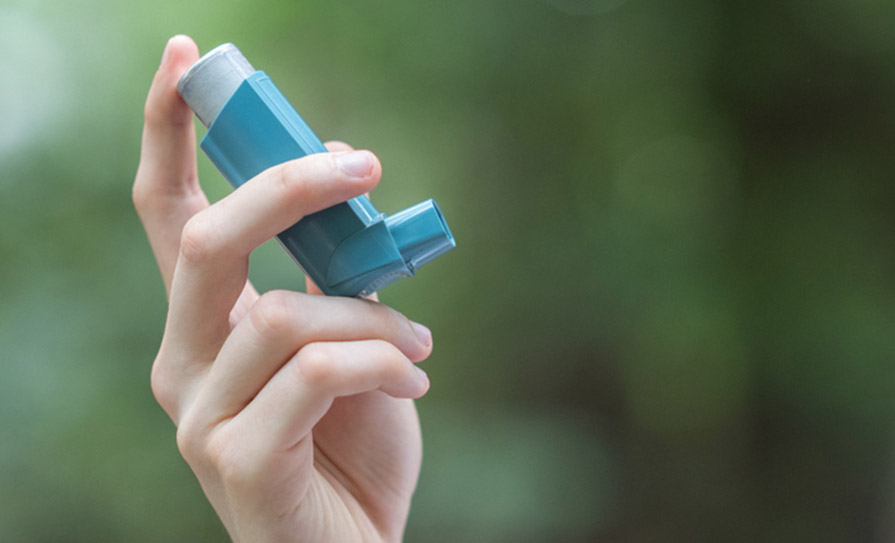
I harbour a reluctance to accept many medical edicts without demur
There is an American band called Vlad the Inhaler. I don’t know whether any band member has breathing difficulties, but I like their name. Someone who did have breathing difficulties was the asthmatic Marcel Proust (and I like his name too), who – according to his biographer William C Carter – sought bronchial relief on 2 September 1896 by smoking several herbal-based Espic cigarettes, and when they failed, undertook a “fumigation” by burning a mound of Escouflaire and Legras anti-asthmatic powders, the fumes of which he inhaled.
By contrast Bill Clinton (I dislike his name) did not inhale; specifically – and he was “gonna say this again” – he did not. Have. Inhalatory relations. With that substance. Marijuana. (But perhaps I’m getting things mixed up).
According to Sorino et al, writing in European Journal of Internal Medicine (2020; 75: 15–18), the first pressurised metered-dose inhaler (MDI) and the first dry powder inhaler (DPI) appeared in 1956 and 1967, respectively. Inhalers are the most widely used devices to address respiratory disorders, and with Ireland having the world’s fourth highest prevalence of asthma, Owens et al, in Irish Journal of Medical Science (online 9 December 2022), estimated the carbon footprint of inhalers in Irish healthcare. They found that of 4.4 million inhalers dispensed in Ireland in 2019, 59 per cent were MDIs; 41.1 per cent were DPIs; and their total carbon equivalent was 54.7 tons of carbon dioxide, with MDIs accounting for 97 per cent of inhaler-related carbon emissions. Owens et al state: “Targeting inhaler prescribing offers the potential to significantly improve the carbon footprint of Irish healthcare.”
On the one hand, if such prescribing “offers the potential” for carbon footprint enhancement, might some consider it to be a form of what behaviourists call ‘nudging’? On the other hand, it has been said that science forces society to separate values from knowledge of the world, so is inhaler-related research, such as that of Owens et al emblematic of an attempt to meld value with knowledge; a demonstration that medical science can be a beneficent instrument of social reform? My answer might have been an emphatic “yes” had I not been given pause for thought after reading a commentary in Journal of Medical Ethics (online January 2023) by bioethicist Dr Travis Rieder. His view is encapsulated in the article’s title: “Green prescribing is good, but patients do not have a duty to accept it.” Acknowledging the perils of climate change, argues Rieder, “does not mean that small, individual emissions make a sufficiently meaningful contribution to ground a duty not to engage in them.” Rieder also considers, inter alia, patient autonomy in relation to green prescribing, and suggests that “reasons do not always generate moral requirements…”. However, his most persuasive point is the suggestion that participants in medical conferences who fly long distances “sits uncomfortably with the control that prescribing physicians have over their patients”.
Leddin et al recently reported on their comparison of travel-related carbon emissions of participants at meetings of the Canadian Association of Gastroenterology (CAG) in Toronto and Banff. Writing in Journal of the Canadian Association of Gastroenterology (2022; 5: 52–58), for participants attending the Toronto CAG, 96 per cent of the emissions were flying-related and the total carbon equivalent generated was 288.8 tons of carbon dioxide, eclipsing the tonnage reported by Owens et al. And in Ecology and Evolution (2021; 11:15205–15211), Seuront et al highlight intense discussions among climate scientists flying overseas to conferences, with some arguing “that their large carbon footprints decrease their credibility to the public and the impact of their advice” and cite attendance at international forums, such as Conference of the Parties meetings as “quintessential examples of this paradox”. Seuront et al also mention 28,000 delegates who travelled to the annual meeting of the American Geophysical Union in San Francisco and “emitted ca 80,000 tonnes of carbon dioxide… the equivalent of the weekly emissions of averaged sized cities, such as Edinburgh or Brazilia [sic]”.
Yet even in this high-flying context, it could be argued that the suggestion of Owens et al on how to improve the carbon footprint of Irish healthcare is a worthy one, even if only on an “every little helps” basis. But why stop there? As the title of a paper by Knight and Fritz in Journal of Medical Ethics (2022, 48: 707–711) notes, “Doctors have an ethical obligation to ask patients about food insecurity: What is stopping us?” Knight and Fritz “suggest that there is an ethical imperative for doctors to ask patients about their ability to access healthy food. Gathering this data provides a valuable first step in re-framing the social determinants of health as modifiable risks, rather than inevitable inequities.” An “ethical imperative”?
Well, they may have a point, but I tend to favour that made by Irving Kenneth Zola, who, in his 1977 essay ‘Healthism and disabling medicalisation’, asserts that “medicine is becoming a major institution of social control”, and I harbour a reluctance to accept many medical edicts without demur.
As James Thurber said: “It is better to know some of the questions than all of the answers.”





Leave a Reply
You must be logged in to post a comment.